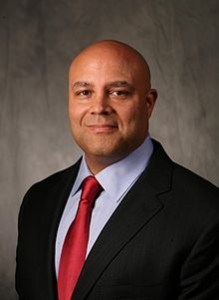
Softbank’s marketing is baffling to Americans. The company has produced more than 150 different ads featuring a “typical Japanese family” that is anything but. The Otosan (father) is portrayed as a white dog, accompanied by a more familiar Japanese mother, a daughter played by a famous Japanese pop star, and her African-American brother.
Softbank, Japan’s third largest cell phone company, is said to be in advanced talks with both Sprint-Nextel and Clearwire to acquire a $12.8 billion majority ownership interest in both companies, according to a report from Bloomberg News.
Softbank’s primary motivation isn’t a sudden interest in serving American cell phone users. It wants bigger discounts for expensive smartphones and other mobile equipment for its Japanese customers, and volume discount opportunities are wide open if the company can pool Sprint, Clearwire, and Softbank together as a single buyer.
CNBC reports Softbank originally sought a blockbuster deal with Deutsche Telekom’s T-Mobile USA, Sprint, and Clearwire to form one super-sized carrier, but the German owners of T-Mobile got cold feet and pulled out, fearing the Obama Administration’s antitrust concerns could ultimately torpedo the deal. DT recently proposed an offer for MetroPCS instead, a deal much more likely to pass regulator review.
The deal could provide much-needed financial backing for Sprint, currently embarked on its costly Network Vision plan to upgrade to 4G LTE service. Softbank also sees synergy with Clearwire, because both companies share the same frequencies and TDD LTE network technology, meaning smartphones compatible on one network will work on the other.
Sprint is still said to be considering making a counteroffer for MetroPCS, potentially pulling that company away from T-Mobile, while Leap Wireless’ Cricket also remains a potential takeover target.
Wall Street thinks a foreign player entering the U.S. market will have a much easier time winning regulator approval, because Softbank has no other interests in the U.S. market. The Justice Department and the Federal Communications Commission both ultimately rejected a previous attempt to merge AT&T and T-Mobile, fearing a larger AT&T would reduce competition and stifle innovation.
Softbank is a disruptive competitor in the Japanese cell phone market. It aggressively competes with KDDI and market leader NTT Docomo. The company is perhaps best known for its oddball, often mystifying marketing which features a talking dog interacting with well-known Hollywood stars, including Brad Pitt, Quentin Tarantino, and Tommy Lee Jones.
Ads feature a typical Japanese family played by atypical actors — a strict father played by a talking dog, a more familiar Japanese mother, a daughter played by a famous Japanese pop star, and her African-American brother. The ads are almost incomprehensible to North American audiences used to a more direct marketing approach. But Japanese audiences love the ads they consider both funny and more importantly, unexpected.
That latter theme is particularly important to Softbank’s image in the Japanese cell phone market. With 98.6% of the country ethnically Japanese, the unexpected family underlines the company’s efforts to shake up conventional cell phone service. Softbank is known for introducing unique plans that target different groups of cell phone users often neglected by larger carriers. First to take a chance with the iPhone to appeal to youth, Softbank also sells plans targeting older users that emphasize unlimited calling to family members.
If Softbank brings this type of marketing to the United States, it could challenge T-Mobile as America’s most disruptive carrier. Just don’t expect a talking dog to close the sale.
[flv]http://www.phillipdampier.com/video/CNBC Softbank Said to Be in Talks to Buy Sprint Nextel 10-11-12.flv[/flv]
CNBC covers the deal between Sprint, Clearwire, and Softbank that originally also included T-Mobile USA. (3 minutes)
[flv width=”640″ height=”380″]http://www.phillipdampier.com/video/Softbank Tommy Lee Jones.flv[/flv]
Softbank’s legendary ads have been running since June, 2007 and are beyond prolific. More than 150 different ads featuring “the Shirato family” have been produced so far, often with blockbuster Hollywood talent playing along. But most prove baffling to English-speaking audiences, such as this one featuring Tommy Lee Jones as a threatening maid with a uni-brow. (1 minute)
[flv width=”640″ height=”500″]http://www.phillipdampier.com/video/SoftBank Quentin Tarantino.flv[/flv]
Quentin Tarantino hams it up in these two impenetrable ads for Softbank. The rough translation from Japanese does not help much. It starts with the older woman asking Otosan (the dog) if he’s going to a town called Tosa. Otosan says yes. Then, the younger woman asks if Tarantino is also going, and he replies: “I am Tara!” (In the longer version, Tarantino does his Samurai impression “Hai-ya! Samurai spirit! Get him with the Samurai sword! Ho-ha!”) Otosan responds, “I’m determined to go to Tosa!” The older woman tells Tarantino to calm down. When the phone rings, the younger woman says, “It’s the phone,” and the older woman says, “It’s your wife.” Tarantino gasps. The wife asks for Tara. Tarantino responds, “I am Tara!” His wife yells, “Get home right now!” (1 minute)
[flv width=”640″ height=”380″]http://www.phillipdampier.com/video/SoftBank Brad Pitt.flv[/flv]
Not every ad features the Shirato family. A barely recognizable Brad Pitt helps out while showing off some creative ways to use his built-in cell phone camera. (1 minute)


 Subscribe
Subscribe





